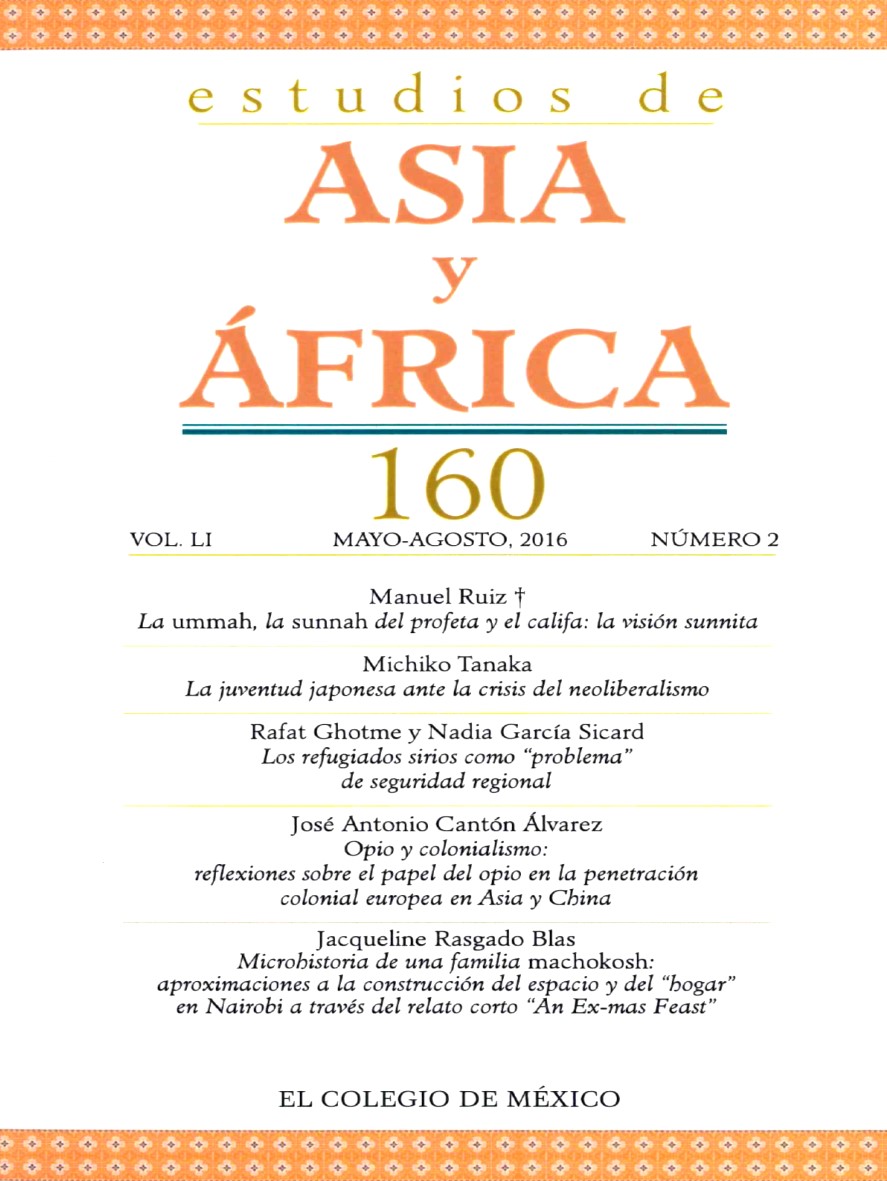Abstract
Japan today shares with the majority of industrialized countries of the world the problem of increasing social differentiation and economic inequality. One third of the young population has not been able to secure the permanentemployment which could guarantee a proper standard of living with positive future prospects. This article examines the process of implantation of neoliberalism in the first half of the 1980’s which has led to the critical situation which we encounter today. We will also be exploring the diverse responses of the youth who belong to the so-called “lost generation” to this troubling situation, with special attention to the actions and thoughts of the social activist Yuasa Makoto.
In the first section, we will provide an overview of the implementation of neoliberal politics in three stages: November 1982 to August 1993, from the formation of the Nakasone cabinet until the renunciation of Prime Minister Miyazawa Kiichi; August 1993 to April 2001, from the formation of the cabinet of Hosokawa Morihiro until the renunciation of Prime Minister Mori Yoshirō; and April 2001 to December 2012, from the formation of the cabinet of Koizumi Jun’ichirō until the formation of the second cabinet of Abe Shinzō. In the initial stage, with the privatization and division of main state enterprises such as the National Rail Road, the organized civil society (trade union), which constituted the basis of Left political opposition
which used to defend social politics, was weakened. The dissolution of the USSR and the World Socialist System accelerated the demolition of this
left-leaning Japanese organization. This situation facilitated the modification of the relevant labor laws and educational reform along with the neoliberal line. Thus in the second stage, the economic and social differentiation mentioned
above was encouraged as a source of motivation and competition. The prolonged depression from the crack of the speculative bubble in the beginning of the decade of 1990’s and the competition with the new industrial economies of Asia led to a drastic industrial restructuring which produced a large number of aged unemployed persons resulting in increased inequality and social marginalization. Moreover, the number of young people without regular employment began to increase. In the third stage, while the Japanese government got involved deeper and deeper in global political conflicts and financial crises, within the country, there were efforts at political changes by way of elections. The existence of poverty was finally recognized, above all, among the youth and children.
In the second period, action and expression of thought of the young people of diverse stances of the so-called “lost generation” with special attention
to the one third of the cohort considerate as “losers” —those who could not find stable and well paid employment that guaranteed their futures—, are examined. In the third, the attention will be concentrated on the actions and thoughts of Makoto Yuasa, a social activist of the lost generation who has led the struggle against increasing poverty considering that this poverty is a product of the neoliberal politics implemented by the government in order to respond to the demands of the business sector.
This work is licensed under a Creative Commons Attribution-NonCommercial-NoDerivatives 4.0 International License
Copyright 2022 Estudios de Asia y África


